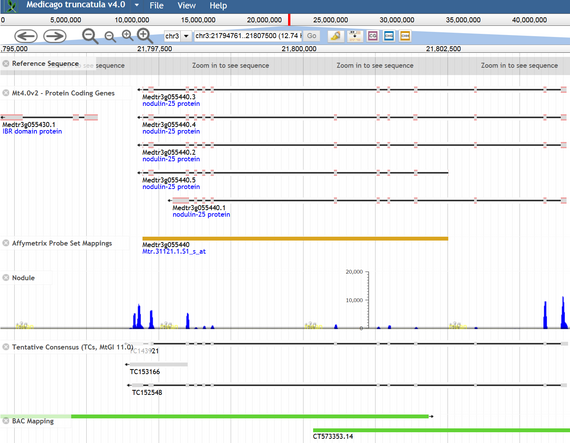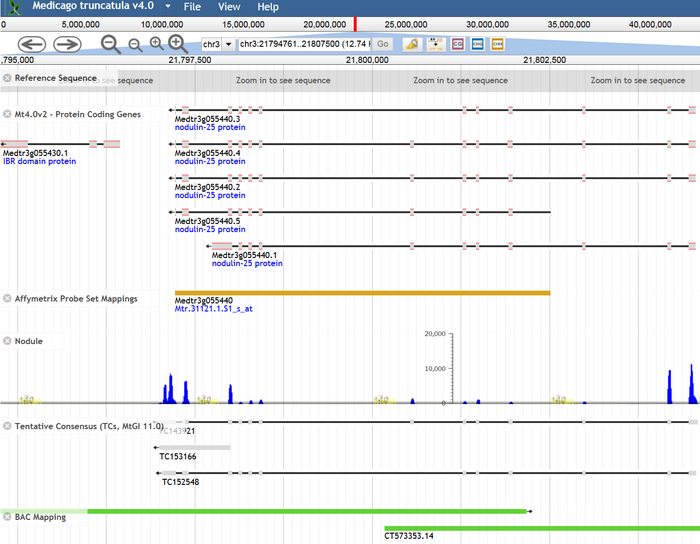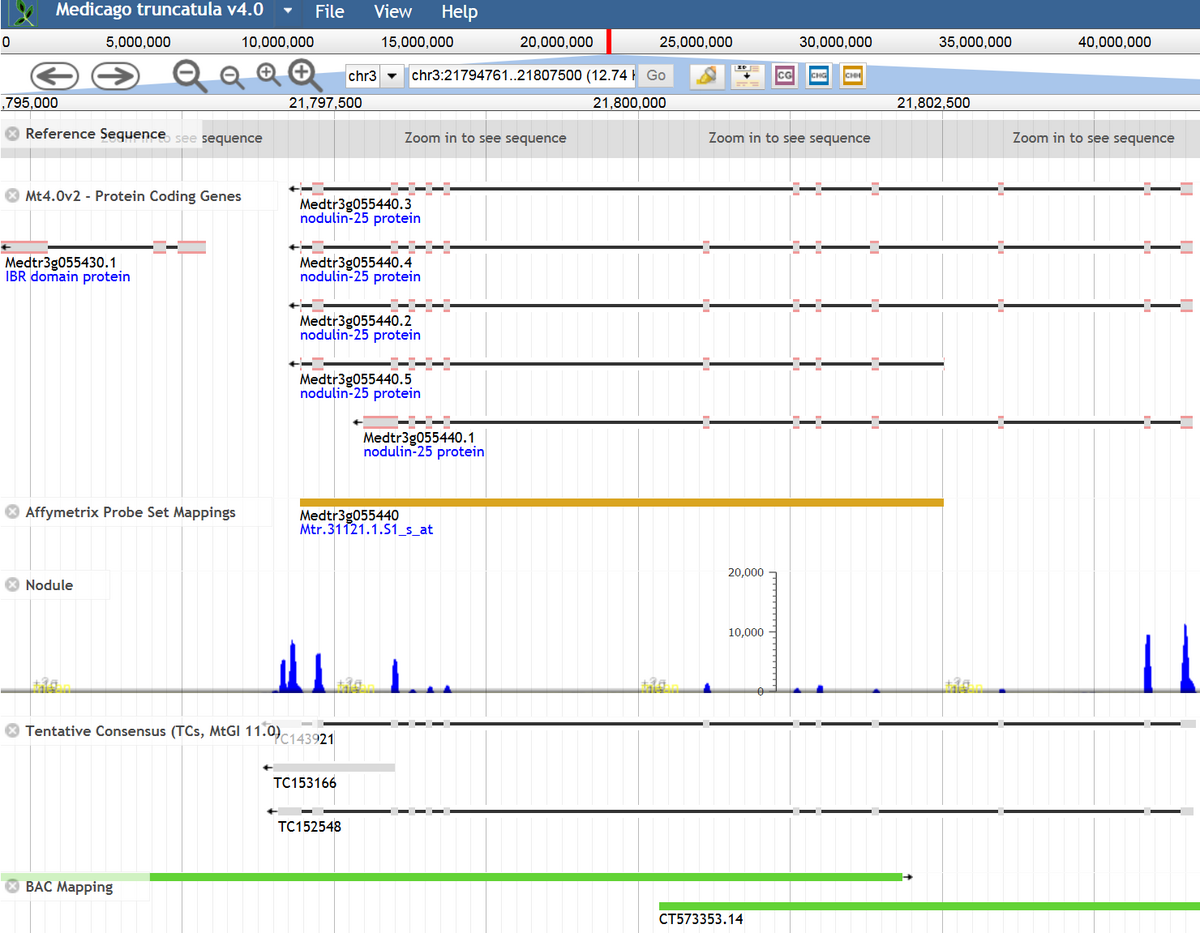Legume genomics



The well-annotated genome of the Mediterranian forage legume Medicago truncatula provides the basis for our work on the discovery and functional analysis of host genes controling both the initiation and the development of beneficial plant-microbe interactions, in particular the arbuscular mycorrhiza symbiosis.
The model legume Medicago truncatula
The Mediterranean forage legume Medicago truncatula is an established model to study different aspects of plant biology, in particular the development of root endosymbioses, plant-pathogen interactions, and the formation of protein-rich seeds.
Medicago truncatula is closely related to forage and grain legume crops of agricultural importance, e.g. Medicago sativa (lucerne) or Pisum sativum (pea). Due to its suitability for genome-enabled studies, Medicago truncatula has been chosen as a nodal species for structural, functional and comparative legume genomics.
Medicago truncatula links
- Browse Medicago truncatula publications from PubMed
- Medicago truncatula handbook: Biology, resources, and protocols
- Release 5 of the Medicago truncatula genome
- LIPME-INRAE/CNRS Toulouse: MtExpress - Medicago truncatula Gene Expression Atlas


